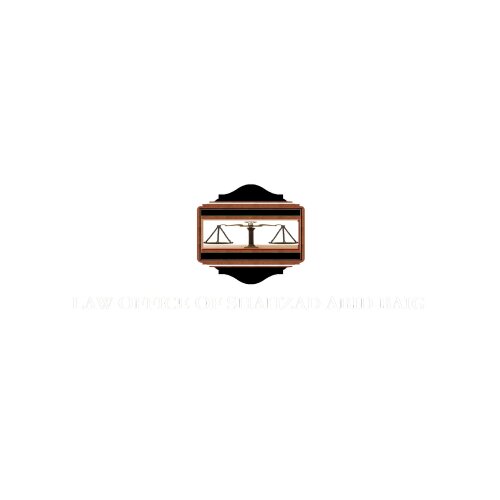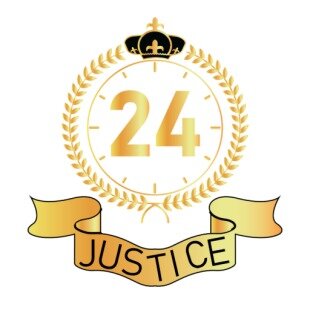Best Constitutional Law Lawyers in Pakistan
Share your needs with us, get contacted by law firms.
Free. Takes 2 min.
Or refine your search by selecting a city:
List of the best lawyers in Pakistan
About Constitutional Law in Pakistan
Constitutional Law in Pakistan establishes the framework for the political and legal systems, setting forth the structure, functions, and limitations of different government institutions. The Constitution, which was promulgated in 1973, is the supreme law of Pakistan and guarantees fundamental rights to its citizens, including the right to equality, freedom of speech, and religious freedom. It also delineates the powers of the Executive, Legislature, and Judiciary, ensuring the separation of powers and checks and balances among the different branches of government.
Why You May Need a Lawyer
There are several scenarios where individuals may require legal assistance in the field of Constitutional Law in Pakistan:
- Fundamental Rights Violations: If an individual's fundamental rights, such as the right to life, liberty, or free speech, are infringed upon, they may need legal representation to seek redress.
- Constitutional Amendments: Lawyers specializing in Constitutional Law can help navigate the complexities involved in proposing or challenging amendments to the Constitution.
- Judicial Review: Legal experts can assist in cases where the constitutionality of legislative or executive actions is challenged.
- Federal vs. Provincial Powers: Disputes arising from the division of powers between the federal and provincial governments often require constitutional expertise.
- Public Interest Litigation: Lawyers can file cases on behalf of the public to address issues of broad societal impact.
Local Laws Overview
The Constitution of Pakistan is the key legal document and is complemented by various statutes, presidential orders, and case law. Key aspects relevant to Constitutional Law include:
- The Eighth Amendment: Initially introduced to provide stability and continuity in government, it became controversial due to its impact on the balance of power between the Presidency and the Prime Minister.
- Judiciary's Role: The Supreme Court of Pakistan has the power to interpret the Constitution and is instrumental in upholding constitutional law through its rulings.
- Fundamental Rights: Articles 8-28 of the Constitution enumerate and protect fundamental rights such as equality before law, protection against discrimination, and the freedoms of speech, movement, and assembly.
- Federal Structure: The division of powers and responsibilities between federal and provincial governments is critical, as outlined in the Constitution.
Frequently Asked Questions
1. What is the supreme law of Pakistan?
The Constitution of Pakistan, enacted in 1973, is the supreme law of the country.
2. How can I challenge a law as unconstitutional?
To challenge a law as unconstitutional, you can file a petition in the High Court or directly in the Supreme Court under Article 184(3).
3. What are fundamental rights?
Fundamental rights are the basic human rights guaranteed by the Constitution, including the rights to life, liberty, equality, freedom of speech, and religious freedom.
4. Can the Constitution be amended?
Yes, the Constitution can be amended by a two-thirds majority in both houses of Parliament as per Article 239.
5. What is the role of the Supreme Court in Pakistan?
The Supreme Court is the apex court, responsible for interpreting the Constitution and serving as the final court of appeal.
6. What is judicial review?
Judicial review is the power of courts to assess the constitutionality of legislative and executive actions.
7. What is the role of the Council of Common Interests (CCI)?
The CCI resolves disputes between the Federation and provinces regarding the use of natural resources, among other things.
8. Can provincial laws override federal laws?
No, federal laws take precedence over provincial laws in case of any conflict.
9. Can I file a case as a public interest litigation (PIL) in Pakistan?
Yes, you can file a PIL in the High Courts or Supreme Court to address issues affecting the public at large.
10. What is meant by "fundamental rights are justiciable"?
It means that fundamental rights can be enforced and violations can be challenged in a court of law.
Additional Resources
To aid in understanding and engaging with Constitutional Law in Pakistan, consider these resources:
- Supreme Court of Pakistan: Provides resources and information on constitutional law cases and judgments.
- Lahore High Court, Sindh High Court, and other provincial High Courts: Websites offer access to legal resources and case laws.
- Pakistan Bar Council: A valuable resource for finding qualified constitutional law attorneys.
- The Constitution of Pakistan (text): Available freely online for reference.
Next Steps
If you require legal assistance in Constitutional Law, consider the following steps:
- Research and Identify: Start by identifying the specific legal issue and conducting preliminary research.
- Consultation: Schedule consultations with a few constitutional law attorneys to discuss your case and get professional advice.
- Evaluate Credentials: Ensure the lawyer you choose has relevant experience and a solid understanding of constitutional matters.
- Engage the Lawyer: Once you've found an attorney who meets your needs, engage their services to take the necessary legal actions.
Lawzana helps you find the best lawyers and law firms in Pakistan through a curated and pre-screened list of qualified legal professionals. Our platform offers rankings and detailed profiles of attorneys and law firms, allowing you to compare based on practice areas, including Constitutional Law, experience, and client feedback.
Each profile includes a description of the firm's areas of practice, client reviews, team members and partners, year of establishment, spoken languages, office locations, contact information, social media presence, and any published articles or resources. Most firms on our platform speak English and are experienced in both local and international legal matters.
Get a quote from top-rated law firms in Pakistan — quickly, securely, and without unnecessary hassle.
Disclaimer:
The information provided on this page is for general informational purposes only and does not constitute legal advice. While we strive to ensure the accuracy and relevance of the content, legal information may change over time, and interpretations of the law can vary. You should always consult with a qualified legal professional for advice specific to your situation.
We disclaim all liability for actions taken or not taken based on the content of this page. If you believe any information is incorrect or outdated, please contact us, and we will review and update it where appropriate.
Browse constitutional law law firms by city in Pakistan
Refine your search by selecting a city.

















